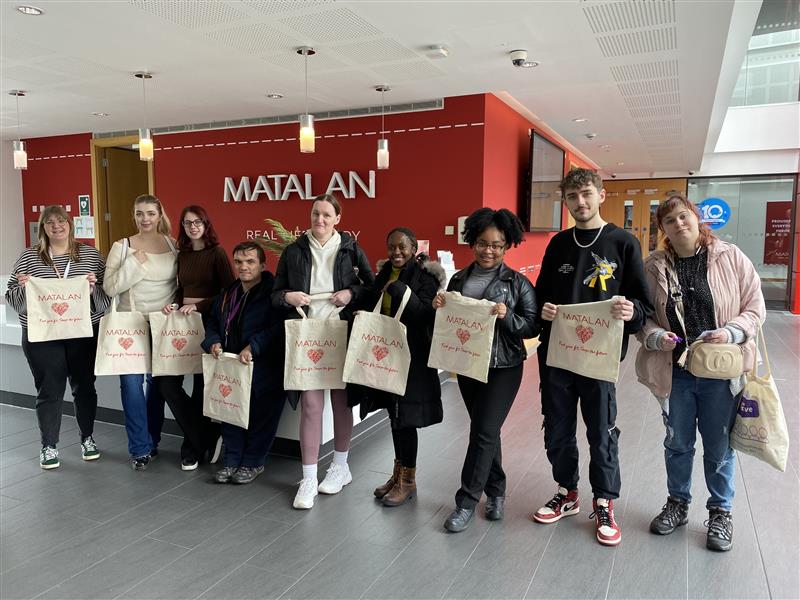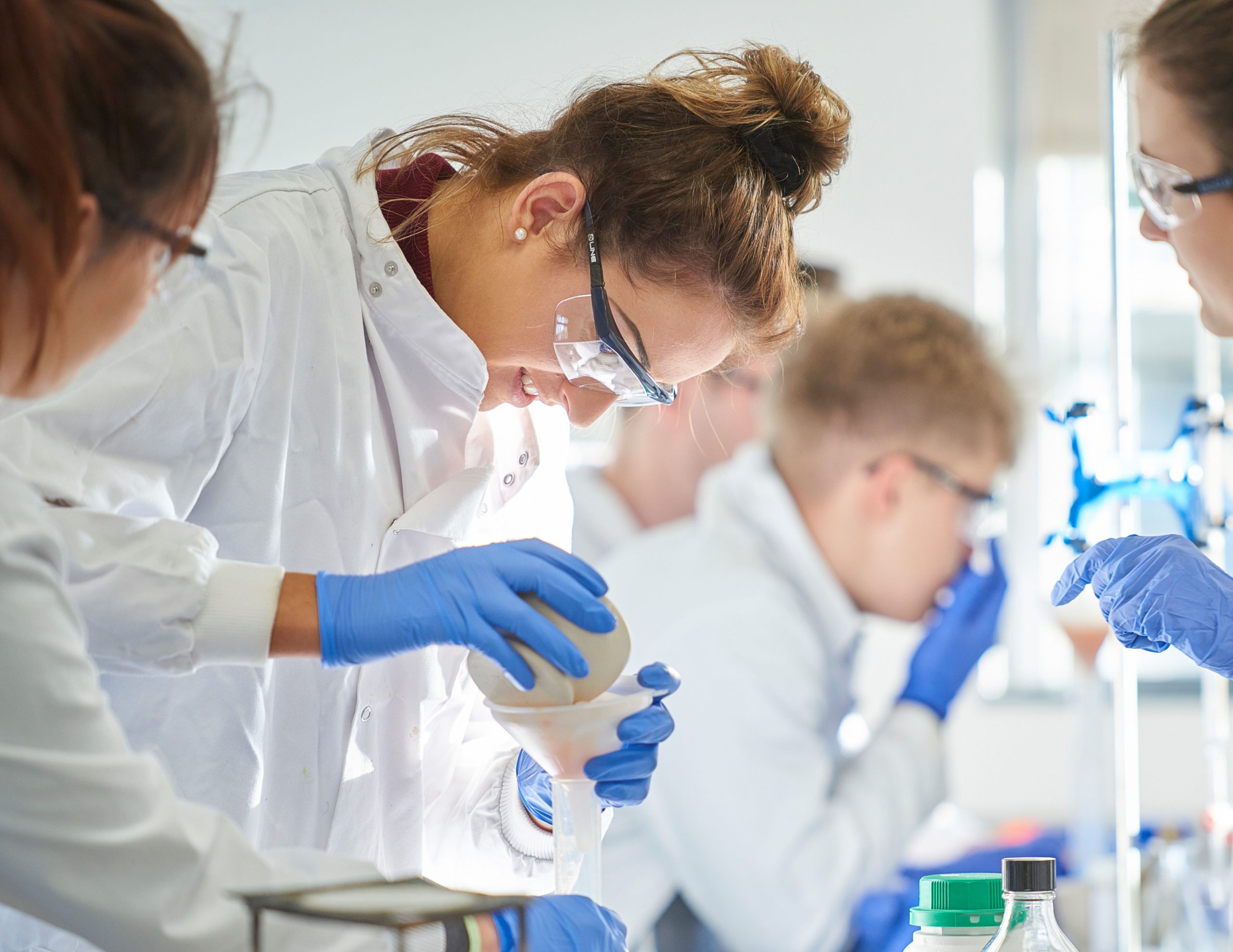
Senior Lecturer, Dr Genevieve Stone, sat down to talk to us about what studying nutrition at Edge Hill involves, particularly how you can apply theory into practice in our labs and food skills area.
The study of nutrition covers so many different spheres of life in terms of what we eat and why we eat certain things. You learn everything from the scientific aspects such as metabolism, chemistry, biochemistry, and biology right through to sports nutrition and public health nutrition. Part of this involves looking at the socio-economical, cultural, psychological and religious factors behind food decisions. Nutrition at Edge Hill is an applied science which means that a key focus of the course is on applying the theory and knowledge learnt in lectures into practical focussed projects. So, how do we do this? Keep reading below to find out.

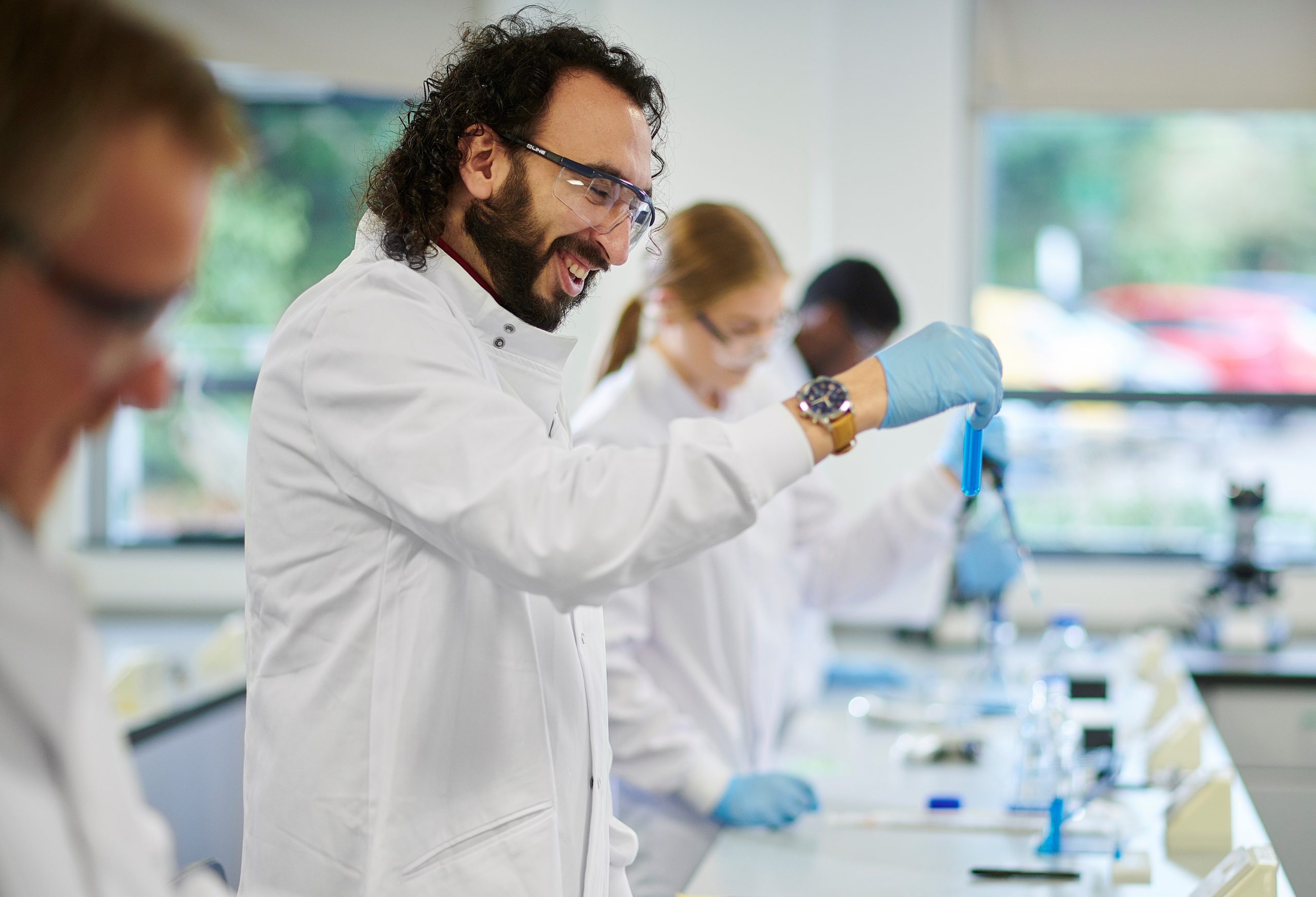
The labs
Our laboratories are used to bring the diagrams and information you receive in textbooks and lectures to life.
Experiment, test, investigate
The lab sessions are used to undertake a range of investigations. Among others, these include, measuring the concentration of glucose and proteins in samples,looking at fats in foods like margarines to understand their melting properties, testing food samples to discover their anti-bacterial properties, and studying the spoilage of food through enzymes to explore the processes food might go through to increase shelf life.
Understanding the body
We also run an optional lab session that offers you the opportunity to take part in a dissection of organs. This involves exploring what the chambers of the heart look like, what the tissue of the liver looks and feels like, and how the tissue of the lungs differs from that of the liver. Students always take a lot from this session.
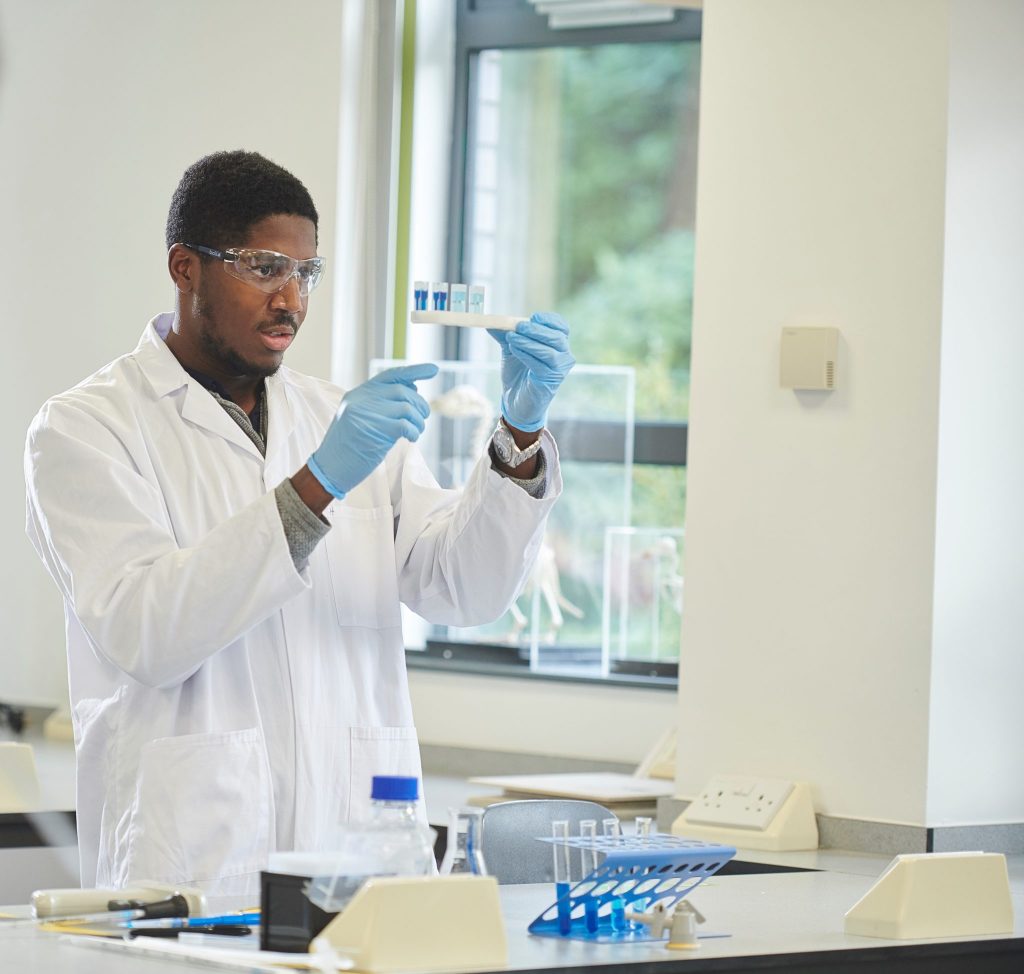
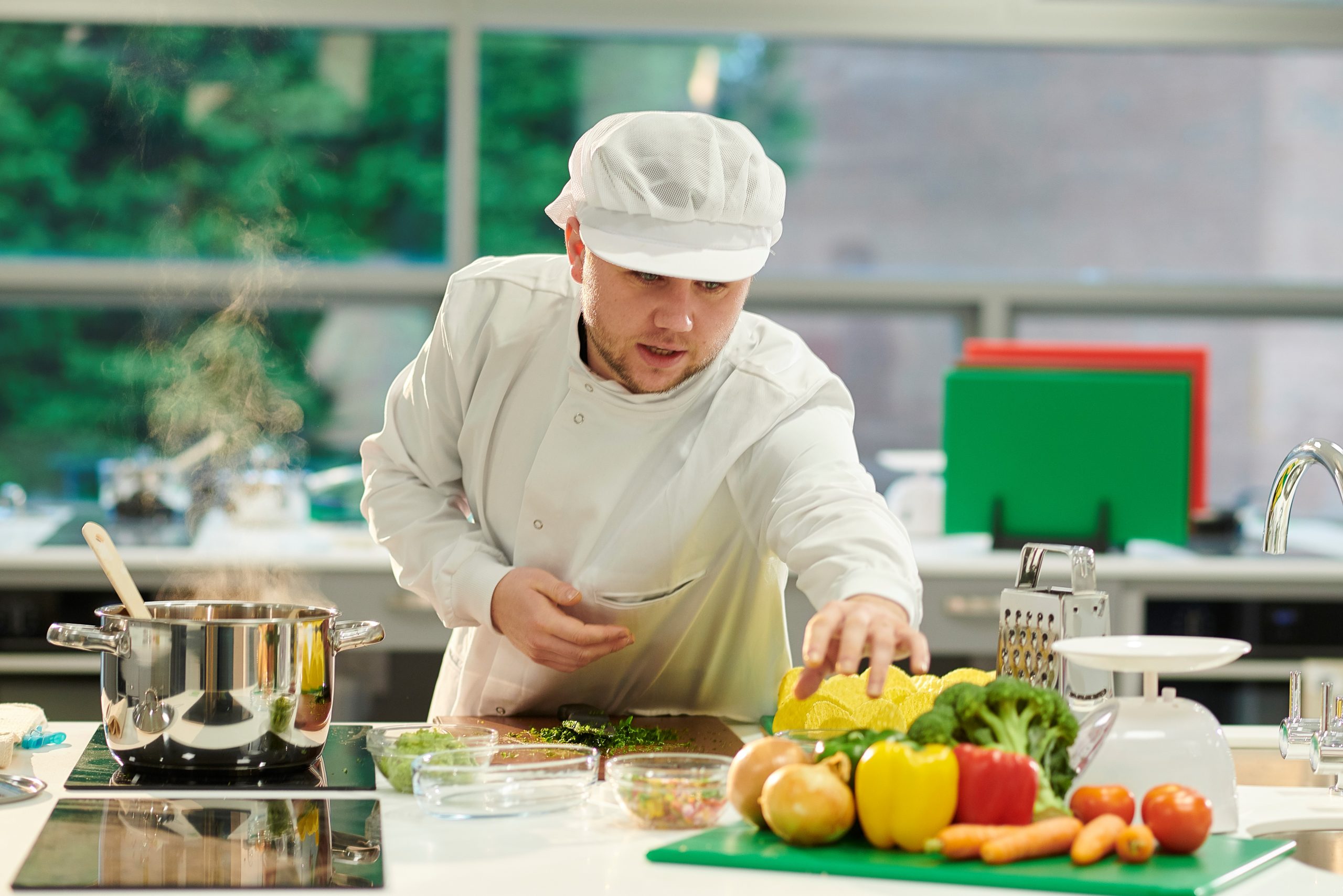
The food skills area
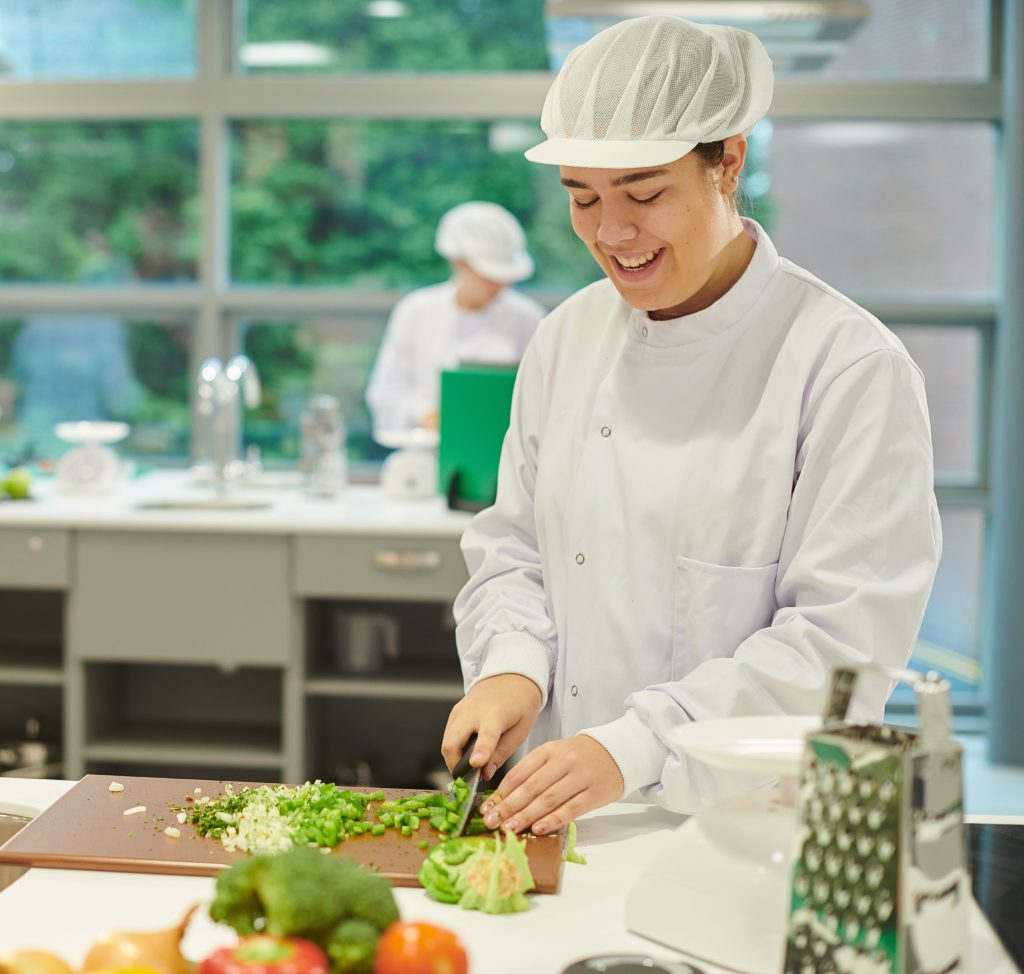
As human beings, we consume food daily. The food skills area is used to undertake certain experiments and deepen your subject knowledge around food.
Understanding food
You will be introduced to factors such as food quality, food safety, and the need for the processing and preservation of certain foods. You will also investigate ingredient replacement methods – if you are someone who can’t eat gluten, how do we replace the gluten in foods like bread, but yet keep its texture and flavour as close to original as possible? In the food skills area, you will take food as a starting point, but will also consider how this applies to nutrition more widely.
Food practices
All sessions in the food skills areas are important for your future. Depending on your future career direction, you may need to teach people food safety and hygiene practices or demonstrate to families how to cook a healthy meal on a budget.
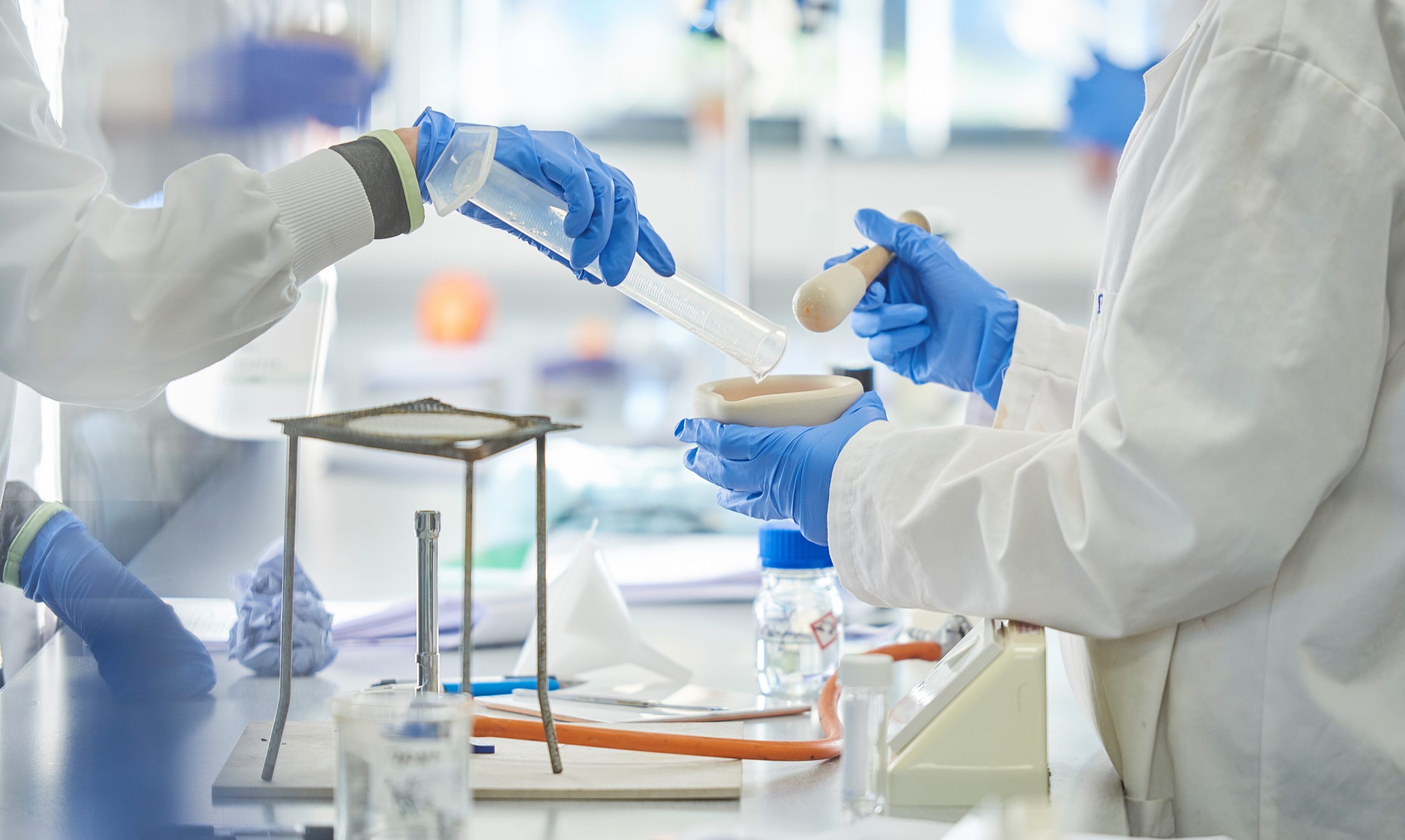
The benefits
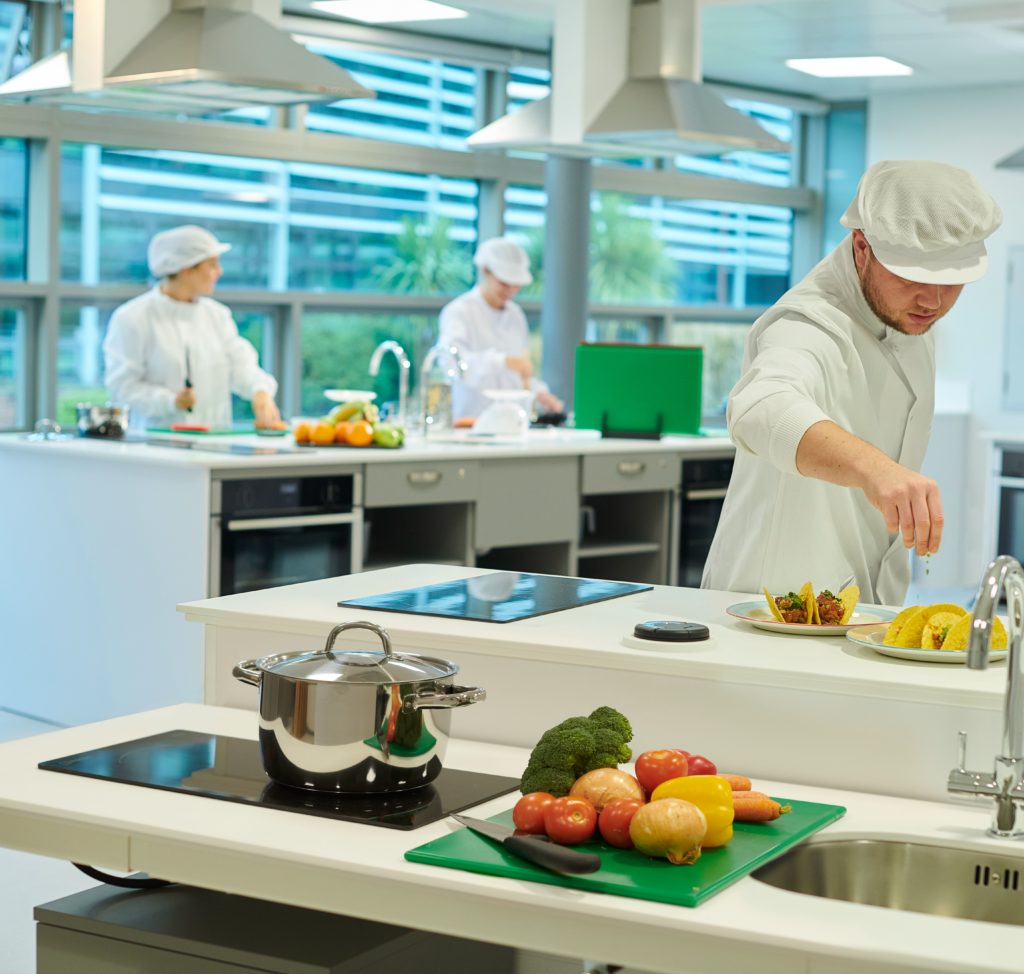
These modern, high-quality facilities are essential both during your studies, and for your future.
Teamwork, communication and awareness skills
These skills are essential when working in laboratory and kitchen environments, particularly regarding safety. Working in the labs and food skills areas requires very clear communication between all individuals when handling chemicals or equipment.
Opportunities and inspiration
The practical sessions give you the chance to apply theory first-hand. Often, the best way to learn the theory is by actually applying it yourself. The sessions also provide inspiration as well as the equipment, tools and materials required for application based dissertation projects in third year.
Industry standard methods
Working in the labs and food skills area also provides you with hands on experience of industry standard methods. This is of huge benefit when on work placements, in voluntary positions, and upon graduation. You will enter these environments with a pre-existing working knowledge of the skills, methods and techniques required for the work you will be undertaking.
“Having the opportunity to take part in practical sessions is not only fun but extremely beneficial to our learning on the course. We are able to take the theory and put it into practice, this cements our knowledge in various scientific areas. It also brings a greater understanding to the potentially more tricky topics, as we actually get to see and practice what we’ve just learned.”
Lia Thorpe
BSc (Hons) Nutrition & Health
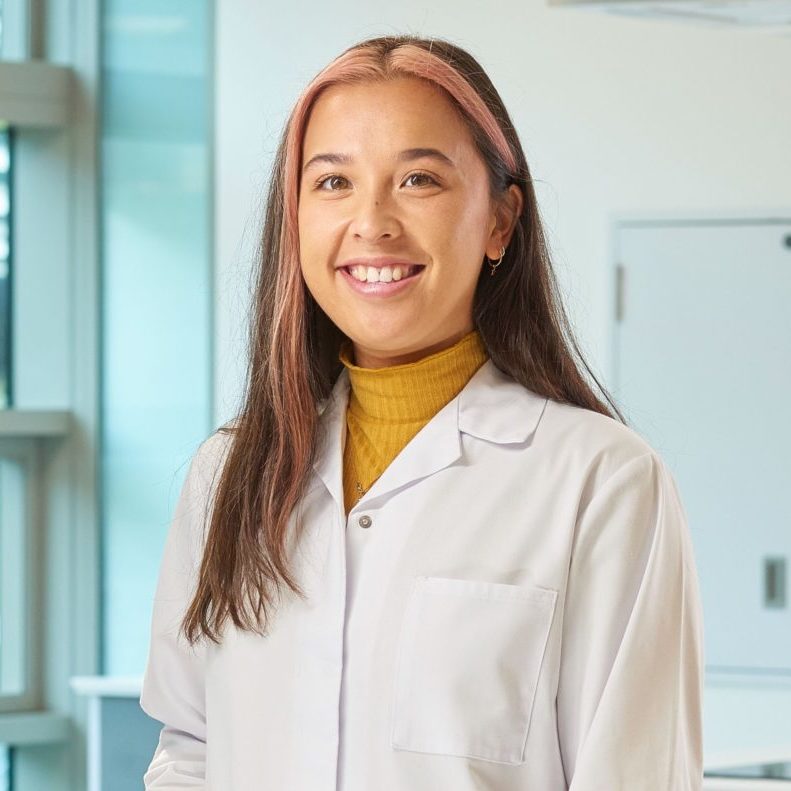
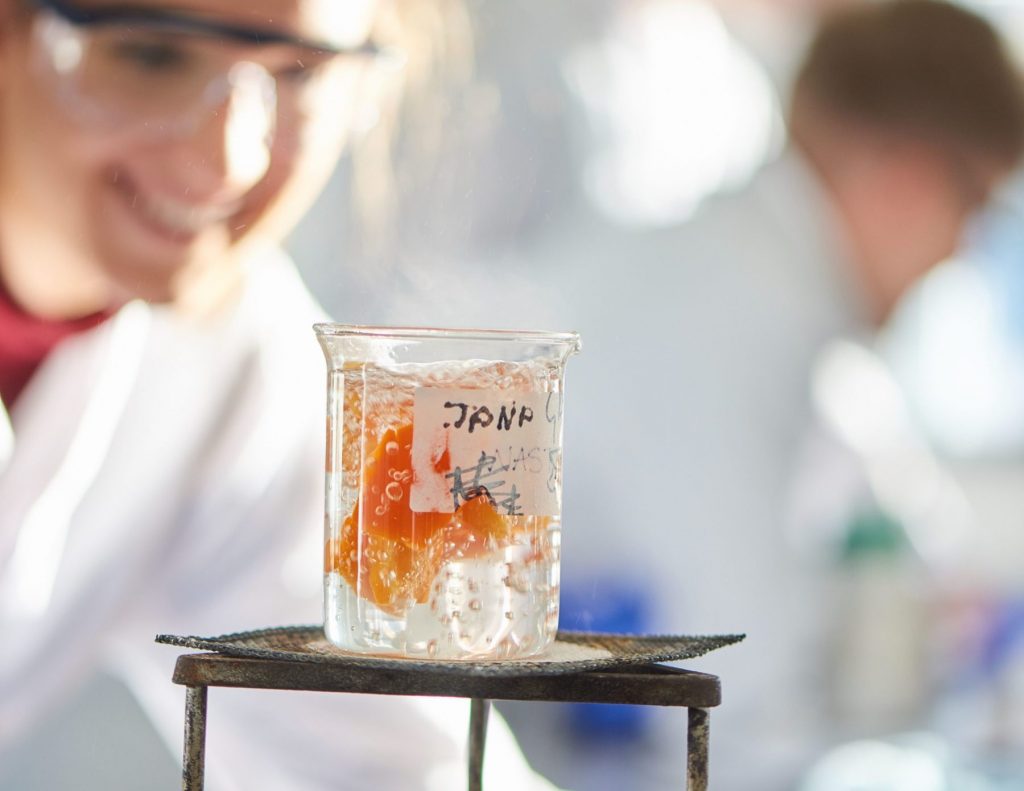
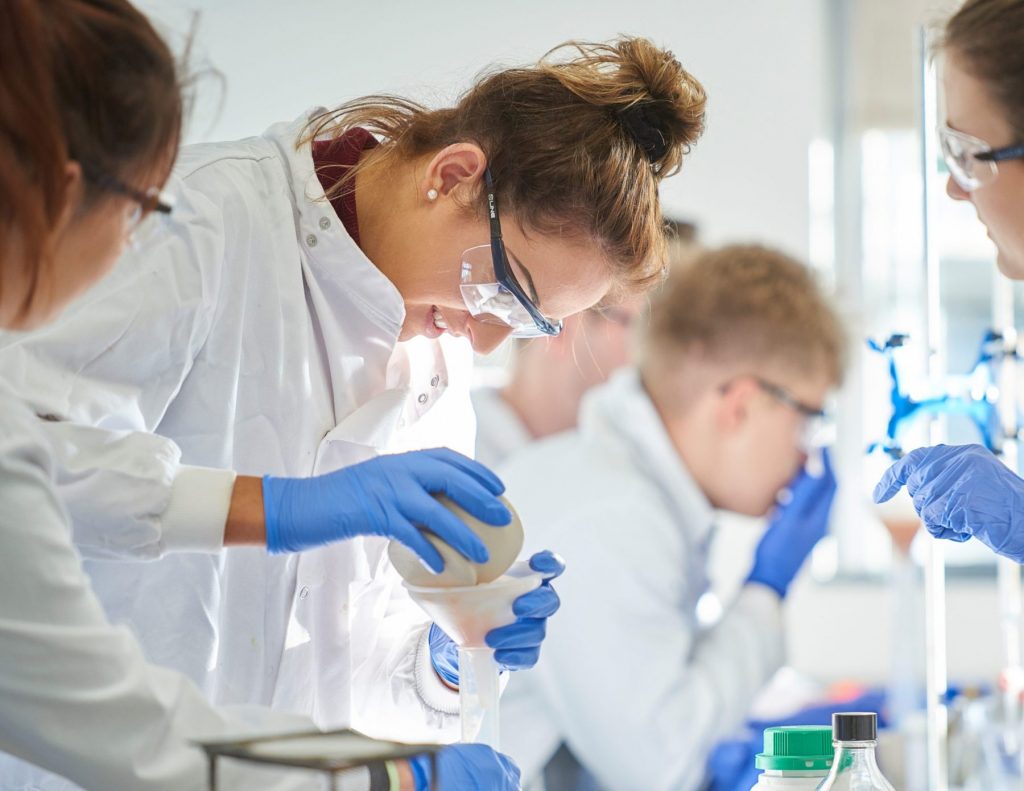
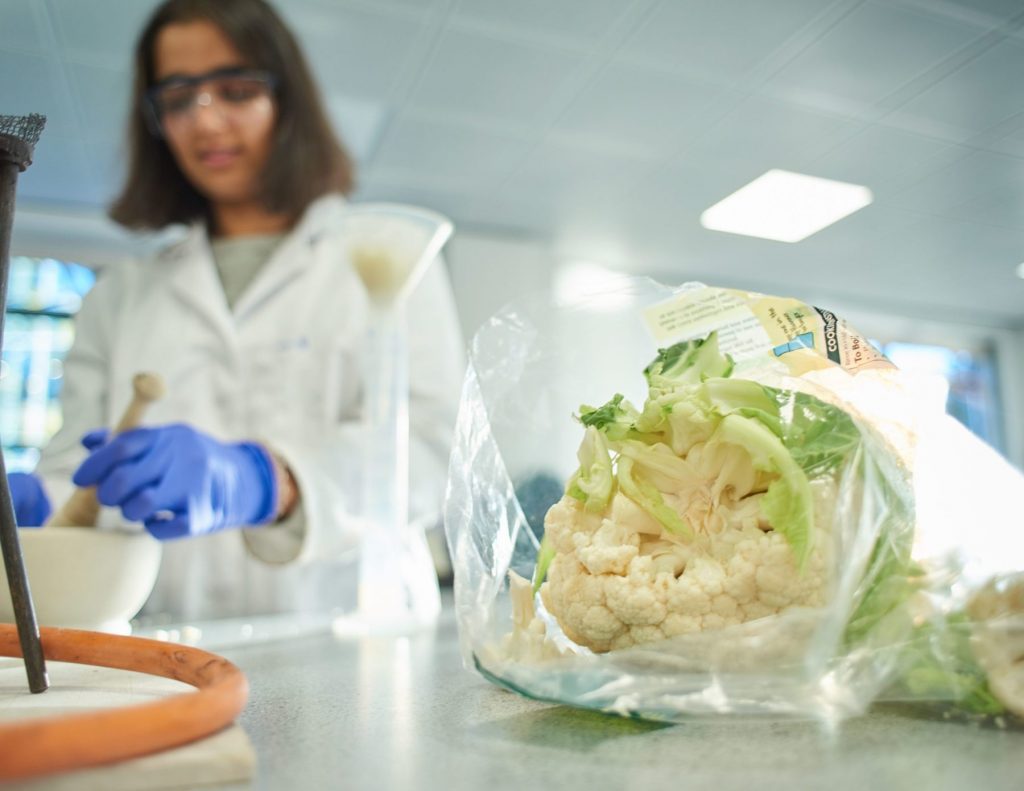
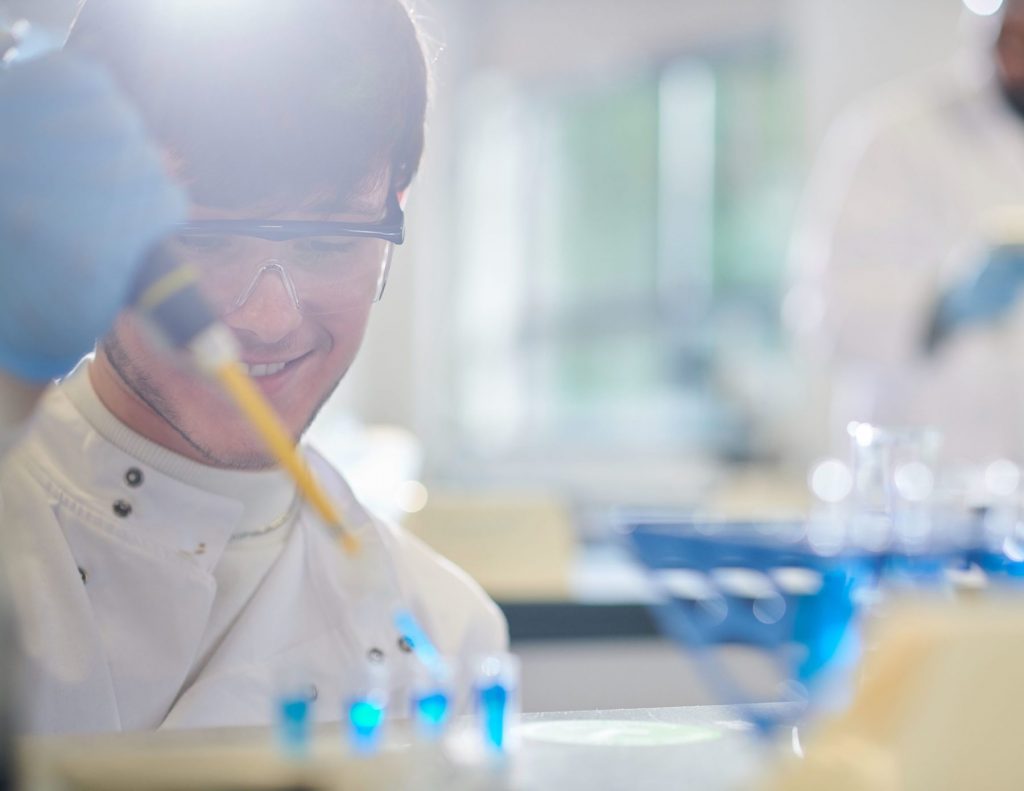
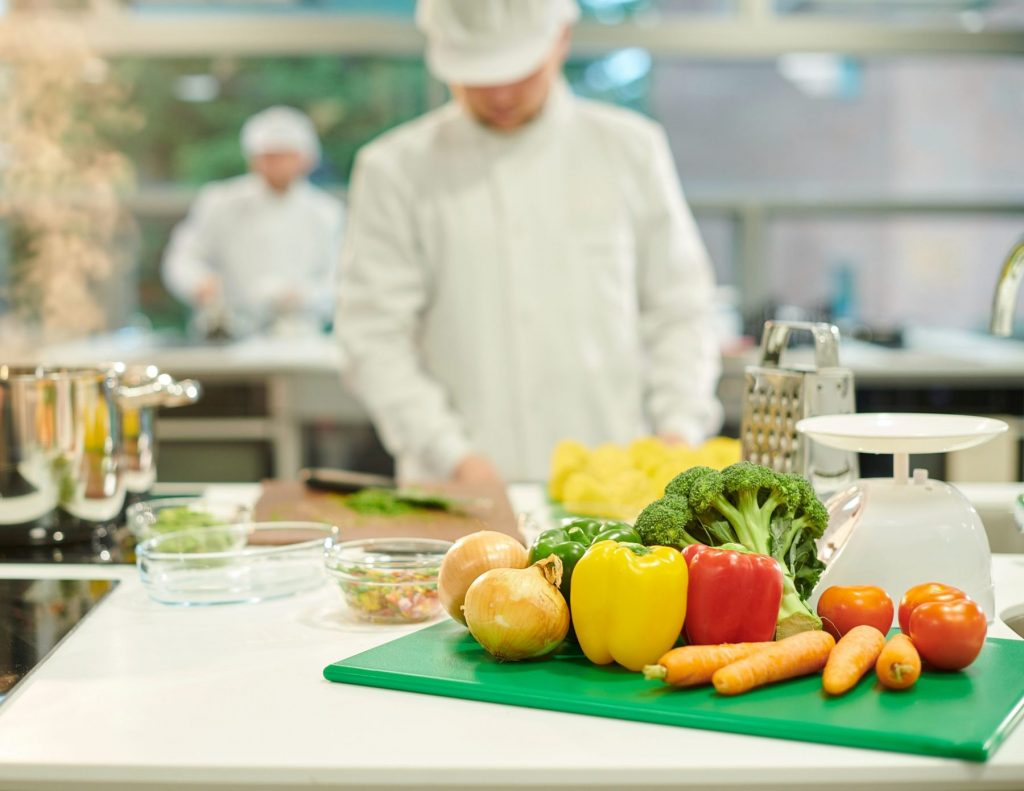
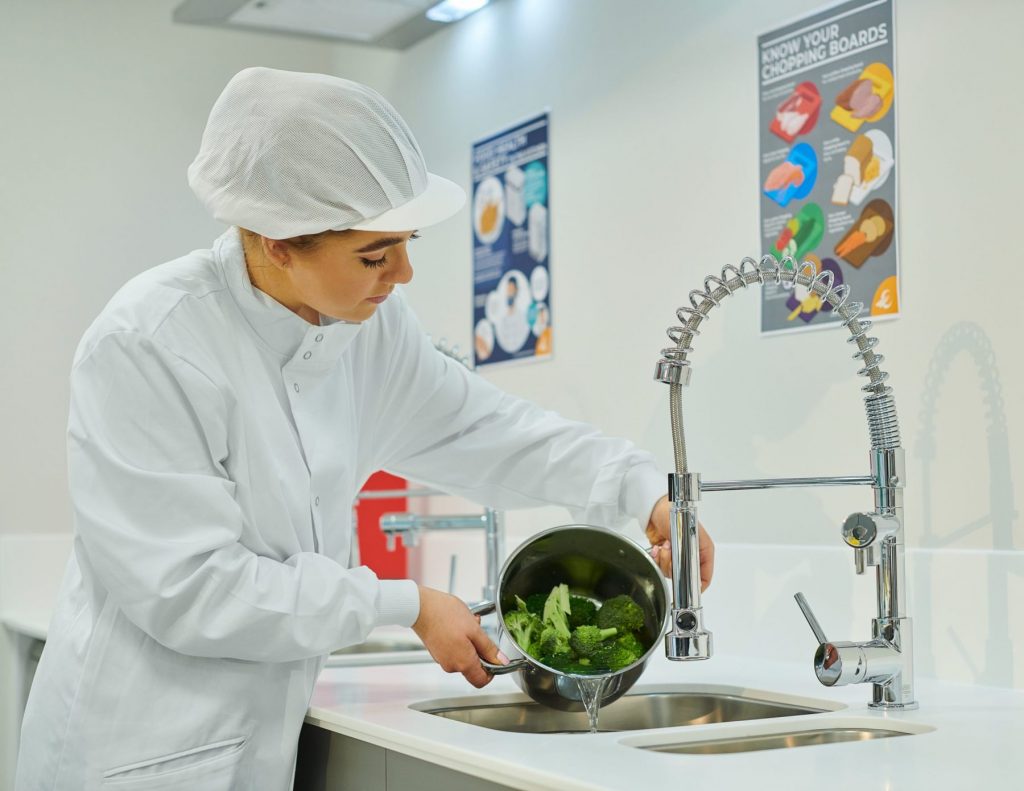
May 6, 2022
